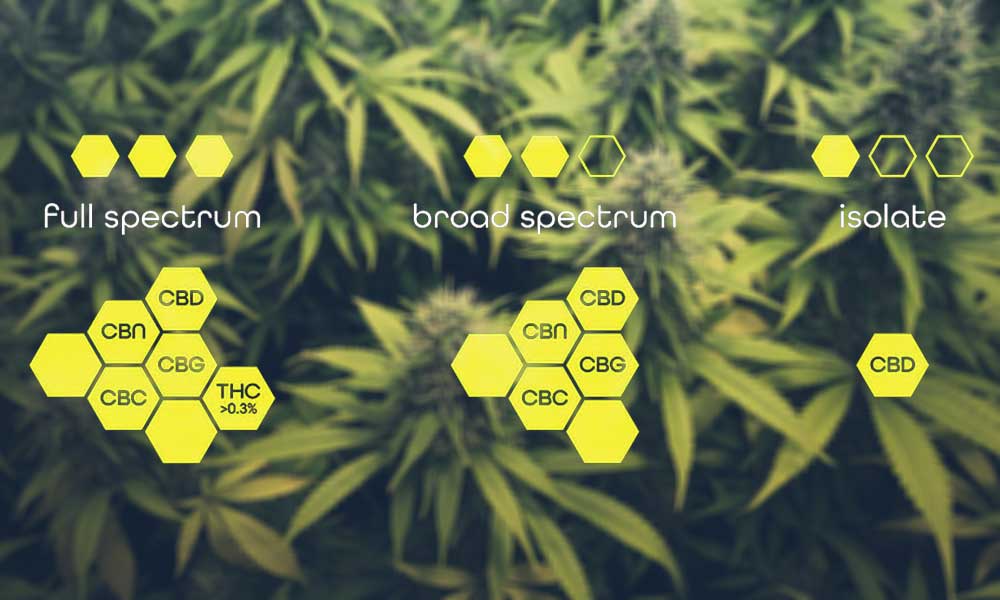Cannabidiol, or CBD, is a compound found in cannabis plants. It has generated a lot of interest lately because of its potential therapeutic benefits. CBD is available in two forms: full spectrum and broad spectrum. Full-spectrum CBD contains all the compounds found in the cannabis plant, including THC. Broad-spectrum CBD does not contain THC. Some people believe that full-spectrum CBD is more effective than broad-spectrum CBD, but no scientific evidence supports this claim.
What is CBD?
Table of Contents
Cannabidiol, also known as CBD, is a compound found in cannabis. Unlike other compounds found in the cannabis plant, such as THC, CBD does not cause a “high.” CBD has been shown to have several potential health benefits, including reducing anxiety and inflammation. Some people use CBD oil to help treat epilepsy and chronic pain conditions.
What is the difference between full-spectrum and broad-spectrum CBD?
Cannabidiol (CBD) is a compound found in the cannabis plant with significant therapeutic effects. CBD oil is made by extracting CBD from the cannabis plant then diluting it with a carrier oil like coconut or hemp seed oil.
There are two main types of CBD oil: full-spectrum and broad-spectrum. Full-spectrum CBD contains all the cannabinoids and terpenes found in the cannabis plant. Broad-spectrum CBD contains most cannabinoids and terpenes found in the cannabis plant, but it has been stripped of THC, the psychoactive compound that makes people high.
THC is not present in broad-spectrum CBD oils because it’s been removed during the extraction process. This makes broad-spectrum CBD a good choice for people who want all the benefits of CBD without any of the psychoactive effects associated with THC.
How do you know which one to choose?
There are a few factors to consider when choosing between full-spectrum and broad-spectrum CBD. The first is the potency of the CBD. Full-spectrum CBD has a higher potency than broad-spectrum CBD. The next factor to consider is the THC levels. Full-spectrum CBD has higher levels of THC than broad-spectrum CBD. Lastly, it would help to consider what you are using CBD for. If you use it for general wellness, then either option will work. If you are using it for a specific condition, you may want to choose a full spectrum or a product with higher levels of THC if your condition requires it.
FAQs:
What is the difference between Full Spectrum and Broad Spectrum CBD?
Broad-spectrum CBD products contain more cannabinoids and terpenes than full-spectrum CBD products. This is because broad-spectrum extracts are made from a whole plant extract, whereas full-spectrum extracts are made from the whole plant, including the stalks and seeds.
What is the difference between CBDA and CBD?
CBDA is the precursor to CBD, meaning that it is the compound that CBD is derived from. CBD is not psychoactive, meaning it does not produce the “high” associated with marijuana.
What is the difference between CBD and THC?
CBD and THC are both cannabinoids, but they have different effects on the body. THC is psychoactive, and CBD is not. THC is associated with the “high” that people feel when they smoke marijuana, while CBD does not have any psychoactive effects.
What does Full spectrum CBD mean?
There is no definitive answer to this question, as the term “full spectrum CBD” can mean different things to different people. Generally speaking. However, full-spectrum CBD refers to CBD oil or other products that contain all of the cannabinoids and other beneficial compounds found in the cannabis plant. This includes CBD and THC and other cannabinoids, terpenes, and flavonoids.
Conclusion:
In conclusion, it is important to understand the difference between full-spectrum and broad-spectrum CBD to make the best decision for your individual needs. Full-spectrum CBD contains all cannabinoids and terpenes found in the cannabis plant, while broad-spectrum CBD has been stripped of certain compounds, such as THC. Broad-spectrum CBD is a great choice for those looking for the benefits of CBD who don’t want to experience any psychoactive effects.



